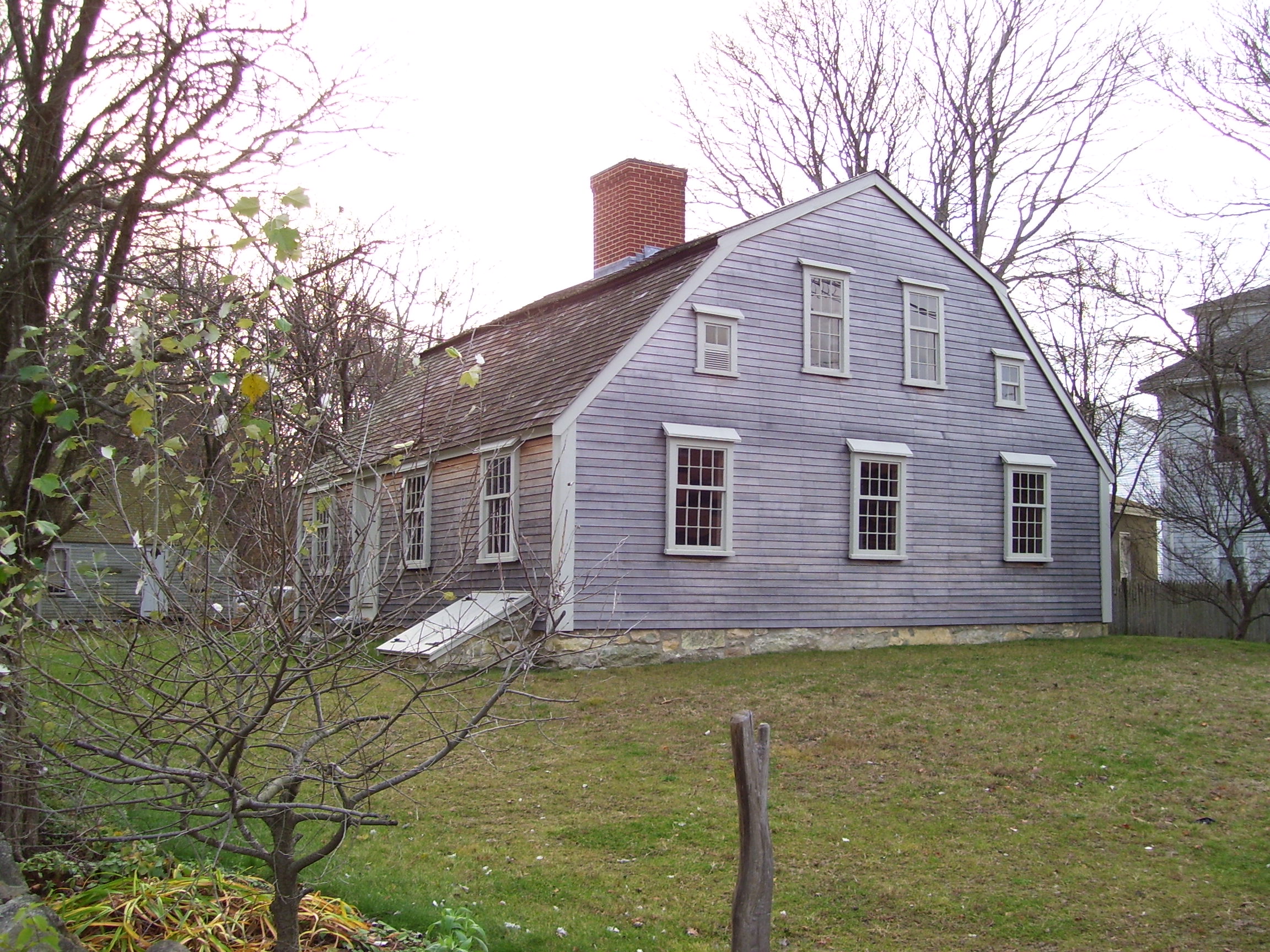 |
| Harlow Old Fort House (From: Wikipedia) |
William was born in England in 1624. He emigrated to America sometime after 1638. William settled in Plymouth and married Rebecca Bartlett, the first of three wives, on December 20, 1649. As a granddaughter of Mayflower passenger Richard Warren, Rebecca was a native of Plymouth. Rebecca bore four children before she passed away following the birth of her last child, William, in 1657. The 21st century family of Patricia (Deladurantay) Bradley is descended from William and Rebecca's son Samuel, born in 1652. William married twice more, to Mary Faunce in 1658, and to Mary Shelly in 1666. William had a total of 14 children.
William became a freeman in 1654. This marked the beginning of a long career of participation in the civic life of Plymouth and Massachusetts Bay Colony. He served as a Plymouth selectman for a total of 15 years between 1666 and 1691. William served the town in other capacities as well, including rater (assessor) and excise (tax) collector, at various times. The pinnacle of his political service was as a Plymouth county deputy to the Massachusetts General Court in 1673 and 1675.
As if this were not enough service to his community, William served as a militia sergeant during King Philip's War (1675-1678), the terrible conflict between English colonists and Indians. He served in the South Company militia under the command of Captain William Bradford. As a respected older member of the community (at least 50 years old), he may not have participated in any violent encounters with Indians--though the extant records tell us little about his service. He was listed as armorer and drill sergeant for the Company.
William remains a tangible presence in Plymouth today. He built a house in 1677 that remains standing today. In that year, William was permitted by the town to salvage materials from the demolition of a fort that had been built on Burial Hill before King Philip's War. Originally built on Court Street, the house has been relocated to Sandwich Street. It is now known as the Harlow Old Fort House. The house contains period furnishings for visitors to view. It is well-known for its hand-hewn beams that are said to have been salvaged from the Burial Hill fort.
There is much yet to be discovered about William's life. He served on the Massachusetts General Court during crucial years in the lead-up to King Philip's War. Research in the General Court records for 1673 and 1675 could provide evidence of his political views and perspectives on New England Indians.
There was another man named William Harlow who lived in Plymouth colony at roughly the same time as "our" William Harlow. The other William Harlow at first lived in Lynn, Mass., then in Sandwich on Cape Cod. There has been considerable confusion among historians and genealogists trying to distinguish between the two. Some believe that the older William Harlow of Sandwich was Sergeant William Harlow's father. For records of the 1630s and 1640s, it is very difficult to determine which person is being referenced. In any case, further research may distinguish the two and provide more information on Sergeant William Harlow's pre-1949 life. So... ask me the next time you see me if I've discovered anything more about William!
William Harlow was my 10th great-grandfather. Having a family tree helps readers to understand my posts a little better. If you'd like to view the family tree I've created on Ancestry.com, send me an email: aarongnoll (at) gmail.com. I'd be happy to share it!